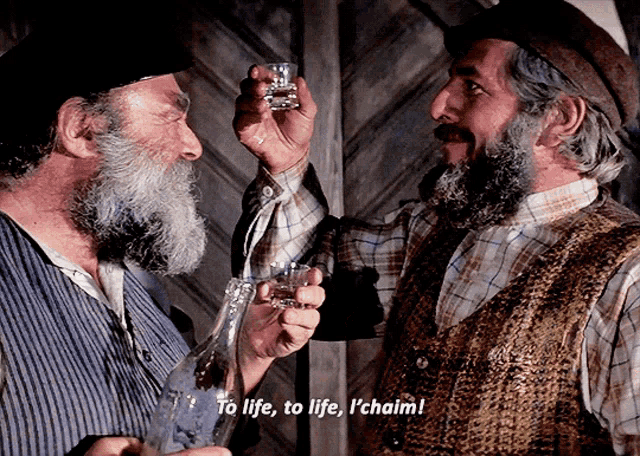
A Mezuzah in Cuba
About 10 years ago, as a Rabbinical student, I was assigned to travel along with a friend to Cuba in order to assist the small Jewish community there with their High Holiday needs.
Our responsibilities included leading services, hosting Kosher meals, and providing much needed basic necessities for the impoverished local community there. In addition, we were to assist local Jewish tourists and visiting business people with celebrating the holidays.

Feel at Home
Have you ever wondered what is the most important part of a home? Is it the roof and exterior walls which provide shelter from outside elements? Or is it the interior design and aesthetics which impact the function and ambiance of the home? Perhaps it's the furniture and appliances which enable us to make use of the home itself?
While all those aspects serve an important purpose, they do not define the ultimate nature of a home. For one can find shelter or even enjoy quality hospitality and luxurious amenities while staying at a hotel as well, but, of course it's still not quite the same as one's home.

AI & Visionary Thinking
In the 1980s and 1990s, most of the AI world had moved on from neural networks. These systems—designed to mimic the brain's structure—were dismissed as inefficient, shallow, and impractical. The dominant trend was symbolic AI: logic-based systems engineered to follow programmed rules. It was neat, controllable, and explainable—but it couldn't learn or adapt.
Geoffrey Hinton thought differently. He believed that the brain-like structure of neural networks held the key to true intelligence. While others abandoned them, he quietly refined his ideas, waiting for computing power and data to catch up. In 2012, that moment arrived.

Effective Communication
A couple days ago, I was speaking with an acquaintance who shared the following challenge he was facing:
After overseeing a merger with another law firm, he was encountering some resistance from a few of his attorneys. Although they were receiving a raise, better working conditions, and job security, they were still unhappy with the new arrangements.
There may be many facets to the quandary, but perhaps one way to address the issue is through effective communication.

Make it Relevant
I recently heard a young entrepreneur share his experiences and struggles which he faced while launching his startup.
He had invested a significant amount of seed money to create a great product, but, for some reason, he had failed to attract enough interest from potential customers to remain sustainable.

A Visionary Mindset
On December 17, 1903, the Wright brothers revolutionized the modern world with the first successful airplane flight, embodying the power of visionary thinking. While most were focused on improving the speed and efficiency of existing modes of transportation, the Wright brothers, like other visionaries, saw beyond the limits of their time, imagining a future where humans could fly.

Yiddish Humor
In the early 20th century, the Borscht Belt in the Catskills was a popular summer vacation destination for Jewish immigrants looking to escape the stress and density of city life.
Many famous Jewish comedians and entertainers got started with their careers performing at hotels and resorts in the area delighting their audiences with Yiddish humor especially highlighting stereotypical Jewish traits.
There is something about the Yiddish language that captures and expresses so much of our Jewish history, culture, and Weltanschauung.

Apple vs. Blackberry: A Deeper Truth About Life
Not long ago, BlackBerry dominated the smartphone market. Its signature physical keyboard and strong security made it the choice for corporate leaders and government officials worldwide. Then, in 2007, Apple introduced the iPhone—sleek, simple, and revolutionary. In just a few years, Apple transformed the tech world, while BlackBerry faded away. Why?
BlackBerry struggled because it failed to adapt. It clung to past successes and resisted change. Apple, by contrast, embraced innovation while staying true to its core values of creativity, simplicity, and user experience. This story is more than a business case study—it offers timeless lessons about growth, humility, and perseverance on the path to our own “promised land.”

The NYT Millennium Edition
For many years in the 90’s there was a small advertisement that ran every Friday on the bottom corner of the front page of the New York Times. It read, “Jewish Women: Shabbat candle lighting time this Friday is ____pm.” It not only served as a reminder of this eternal mitzvah, but it also expressed Jewish pride.
The advertisement ceased after the sponsor ended it, but it reappeared once.

The Difference Between Kodak & Amazon
According to the U.S. Bureau of Labor Statistics, approximately 20% of new businesses fail during their first two years of operation and 65% within the first ten years. Only 25% of new businesses survive for 15 years or more.
While there are many root causes for this phenomenon, two primary reasons are often cited: remaining rigid or expanding too quickly.

One Small Step
At 10:56 p.m. ET on July 20, 1969, the American astronaut Neil Armstrong put his foot on the lunar surface and famously declared, “That’s one small step for man, one giant leap for mankind.”
Neil’s “one small step” was only made possible through years of research and hard work from a large team of experts and billions of dollars of investments.
Parents kvell while watching their children grow up, but they also remember the sleepless nights, the kvetching they had to put up with, the sacrifices they made and the resources they invested in educating their children to develop into mature, good, Yiddishe Mentchen.

In the Depths of Gaza: A Search for Meaning
Omer Shem Tov was just 20 years old when he was abducted during the brutal October 7th terror attack on Israel. Raised in a mostly traditional home, Omer had never been particularly observant, but he had always carried a quiet belief in G-d. That belief became his anchor during the 505 harrowing days of captivity that followed.

Happiness is a Choice
A young couple living in Czarist Russia in the early 1800s were faced with a significant decision. Life in Russia at the time was no picnic, especially for the Jewish people, due to the many economic and religious restrictions imposed on the Jewish communities in particular. They were considering making Aliya and immigrating to Israel to enjoy an easier life with the liberty to openly practice Torah and Mitzvot and benefit from the spiritually uplifting atmosphere of the Holy Land.

A Life Lesson from Steve Jobs
In the opening pages of his biography, Steve Jobs, co-founder of Apple, reflects candidly on his adoption. He recalls a chilling moment when he was about six or seven years old. He told the girl across the street that he was adopted, and she replied, “So does that mean your real parents didn’t want you?”

It’s Bashert
You may have heard the Yiddish expression “it’s Bashert”, loosely translated as, “it’s meant to be”.
While this expression is most commonly used to describe one’s soul mate in the context of marriage and dating, such as, “I found my Bashert”, it also has a broader connotation for many other areas in life including one’s career choice, place of residence, or when facing unexpected challenges and opportunities.

Organized Chaos
In the hours before opening, a restaurant is a scene of controlled chaos. Staff arrive early, each with a specific role. Managers oversee, checking cleanliness and alignment, holding briefings on reservations and special requests. There's a palpable urgency as everyone works against the clock. In the kitchen, chefs and cooks set up their stations while the head chef directs, ensuring everything is prepared perfectly. As opening approaches, the chaos subsides. Final touches are made, lights are dimmed, and soft background music starts. The doors open, and the restaurant transforms. Guests are greeted warmly and led to tables, where the atmosphere is now serene and relaxing, transitioning smoothly from behind-the-scenes chaos to effortless service.

Our Mission Statement
Every business, organization, or movement has a mission statement. The mission consists of the original reason why the entity was created in the first place. Although the products or services that are provided may include a wide range of options, a successful business or organization always remains in sync with its mission and fulfills its intended purpose.

Fantasy or Reality?
At the dawn of the 20th century, life in America looked very different. The average life expectancy ranged from just 33 to 48 years. Most families earned the equivalent of $3,000 a year in today’s dollars, and about half of all children lived in poverty. Teenagers typically didn’t attend school—they worked long hours in factories or on farms.
When Jewish immigrants arrived in the United States during the late 1800s and early 1900s, many believed they would need to abandon their traditions in order to succeed in the “Goldene Medina”—the Golden Land. Assimilation was seen as the price of prosperity. But history has proven otherwise.

The Land of the Free
The 4th of July is more than barbecues, parades and fireworks — it's a time to reflect on the unique character of our great country.
On America’s Independence Day, we pause to celebrate a nation founded on the powerful ideal of freedom — a freedom not detached from morality, but anchored in the belief that every individual is endowed by their Creator with inalienable rights. As the Declaration of Independence boldly states:
"We hold these truths to be self-evident, that all men are created equal, that they are endowed by their Creator with certain unalienable Rights…"

Suprarational
George, an avid fisherman, once set out on a quest to figure out the size of the smallest fish living in the ocean. So he spread out a huge fishing net in the Atlantic Ocean and was amazed to catch fish of all different types, colors and sizes. But surprisingly, out of the tens of thousands of fish that he caught, he did not find any fish smaller than five inches.

